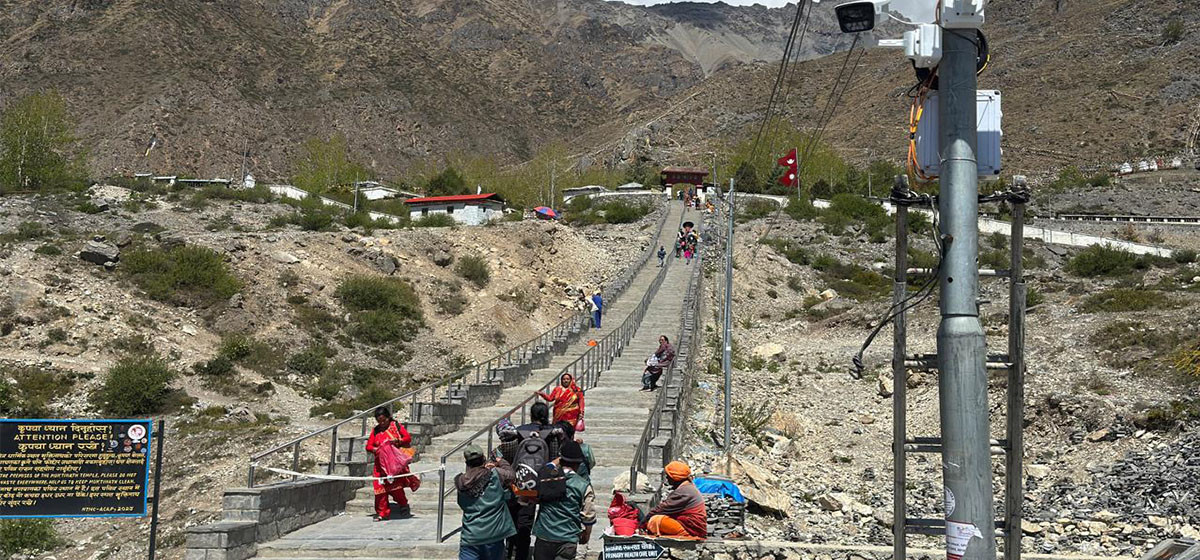KATHMANDU, March 23: Improving roads and trails in mountainous regions of Nepal can improve food security and nutrition for remote rural communities, according to recent WFP research carried out in partnership with national and international experts.
Launching a research report, titled “Road and Market Access and Household Food Security in Nepal”, United Nations World Food Program (WFP) has said that improved infrastructure including rural roads, trails and bridges can help unlock different livelihood opportunities, and improve food security for remote mountain communities.
Speaking at the program, Pippa Bradford, WFP’s Country Director in Nepal said, “Most mountain communities across Nepal cannot grow enough to meet more than a few months of their household food needs. Meanwhile, food carried by hand and by mule up mountain trails, costs three times more than it did in its origins in the Terai.”
Improving roads and trails can improve food security: WFP

WFP has been working to expand access by improving roads and trails in several districts, focusing on rural and hard-to- reach regions of the country. Through several ongoing programs, more than 445 km of rural roads and trails have been built or rehabilitated, opening up critical access to rural communities.
The research builds on earlier work on the impact of road and bridge infrastructure on food prices, market integration and child nutrition status in Nepal.
These programs have benefitted from generous funding from the UK’s Department for International Development (DFID), Korea (KOICA), and other partners.
WFP is the world’s 39th largest humanitarian agency fighting hunger worldwide, delivering food assistance in emergencies and working with communities to improve nutrition and build resilience.
Each year, WFP assists some 80 million people in around 80 countries.






































